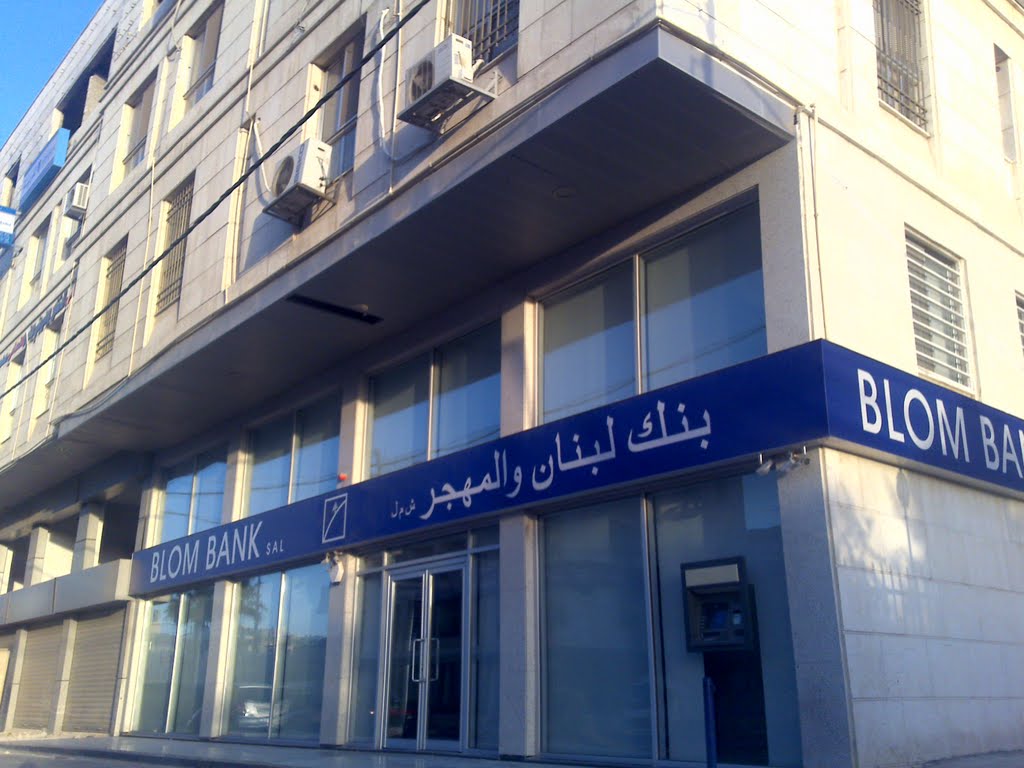“Delicate transactions” were behind the bomb attack which targeted the headquarters of BLOM Bank in Beirut on June 12, sources told Asharq Al-Awsat.
Well-informed sources told Asharq Al-Awsat that the explosion was linked to information obtained by BLOM regarding sensitive transactions that were made through the bank.
The sources added that the bank facilitated a number of delicate transactions and received dangerous information on some names, addresses and dates that would give a clear image on the activities of the so-called Hezbollah. The sources noted that two Lebanese brothers, who are prominent officials in Hezbollah and doing business in Nigeria, have been using the bank to launder money, trade with arms and finance Hezbollah’s foreign activities through at least one account that bears the name of one of their companies.
The sources suggest that one of the main messages behind Sunday’s explosion was to warn those who have information on Hezbollah from revealing “what might represent a threat to the group”.
While no concrete progress has been achieved in investigations led by Lebanese security and judicial bodies into the explosion, Hezbollah maintained silence over the incident.
The Lebanese Cabinet, chaired by Prime Minister Tammam Salam, stressed that the Lebanon’s security, economic and judicial institutions are keen to preserve the stability and security of the banking sector.
The explosion took place during Iftar, and did not cause any fatalities. But the bank was severely damaged and the attack caused outrage amid fears of destabilization and subversion. Salam confirmed that the Finance Ministry is pursuing the issue in cooperation with the relevant state authorities and the banking association.
Hezbollah did not react to Sunday’s bomb attack despite confirmations by the Lebanese interior minister and security bodies that the explosion was directly linked to measures taken by Lebanon’s Central Bank to comply with the U.S. financial sanctions imposed on the group.
During a Cabinet session held on Thursday, Hezbollah ministers Mohammed Fneish and Hussein Hajj Hassan refused to comment on the explosion saying they were “fasting”, while Hezbollah’s media outlets continued to criticize Central Bank Governor Riad Salameh and banking sector for closing down Hezbollah-owned bank accounts.
The well-informed sources told Asharq Al-Awsat that Hezbollah chose to target BLOM Bank as the latter had details on delicate transactions made through it. Sources added that two Lebanese businessmen living in Nigeria were using the bank to perform suspicious transactions such as money laundering and arms trading.
According to the same sources, Hezbollah has a large presence in Nigeria, as reports showed that the group was looking towards creating military units and training camps for a so-called “Nigerian Hezbollah”.
Reports also said that Hezbollah was supporting Shiite leaders, such as Sheikh Ibrahim Yacoub Zakzaki who studied in Iran. Zakzaki’s representative, Sheikh Ismail Shaab, recently declared that efforts deployed by Hezbollah’s Secretary General “Hassan Nasrallah in Africa” have led to the conversion of more than twenty million people in Nigeria to the Shiite confession.
Meanwhile, Lebanon’s Future Bloc MP Bassem Al-Shab said that despite the fact that financial sanctions on Hezbollah were issued by the United States, the group’s media campaign was targeted against Lebanese banks. In remarks to Asharq Al-Awsat, Shab criticized what he described as the “demonization of the Lebanese banking sector”, noting that while the “U.S. imperialism” imposes sanctions on Hezbollah, it forges military deals with Iran amounting to tens of billions of dollars.
MP Marwan Hamadeh, member of Democratic Gathering bloc, said U.S. sanctions “shook the pillars of [Hezbollah], while the Iraqi-Iranian funding has started to diminish, as Iran was funding [Hezbollah] with Iraqi money.”
Media reports said on Thursday that the United States decided to lift its ban on Al-Rasoul Al-Aazam hospital and Bahman hospital following negotiations between Lebanese Central Bank and U.S. officials.
In comments to Asharq Al-Awsat, officials from Bahman Hospital denied receiving any official information in this regard, adding that the hospital did not have any link to Hezbollah.
Meanwhile, General Prosecutor Judge Samir Hammoud told Asharq Al-Awsat that so far no concrete evidence has been reached in the investigations into Sunday’s blast. He added that work was still focused on analyzing the content of surveillance cameras.
